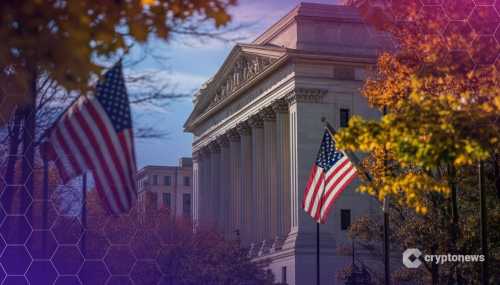Deutsche Bank Unit to Pay $4M for Delayed Suspicious Activity Reports, SEC Says

In a significant development regarding regulatory compliance in financial markets, Deutsche Bank Securities Inc., a registered broker-dealer and subsidiary of Deutsche Bank AG, has agreed to pay the U.S. Securities and Exchange Commission (SEC) a $4 million civil penalty.
The penalty stems from the SEC’s allegations that the firm failed to file Suspicious Activity Reports (SARs) within a reasonable timeframe.
The SEC’s findings reveal a nearly five-year pattern of delayed compliance. Deutsche Bank Securities failed to respond promptly to requests from law enforcement and regulatory agencies.
In some instances, investigations that should have culminated in SARs being filed took more than two years to complete.
Deutsche Bank to Pay $4M in Fine: What Did the SEC Find?
The SEC’s investigation revealed systemic lapses in Deutsche Bank Securities’ compliance processes between April 2019 and March 2024.
Today we charged registered broker-dealer Deutsche Bank Securities Inc., for failing to file certain Suspicious Activity Reports in a timely manner. https://t.co/ixyNYfoMMC pic.twitter.com/q64HhRDsPg
— U.S. Securities and Exchange Commission (@SECGov) December 20, 2024
Under the Bank Secrecy Act and associated regulations, broker-dealers are mandated to report transactions suspected of involving illegal funds, lacking legitimate business purposes, or facilitating criminal activities.
Despite these clear requirements, the firm’s compliance with SAR filing obligations was marred by prolonged delays.
In one notable instance, Deutsche Bank Securities filed a SAR identifying 68 suspicious transactions amounting to nearly $2 billion more than two years after a regulatory agency requested an investigation.
According to SEC Associate Director Sheldon Pollock, such delays undermine the value of SARs, as stale information is of limited utility to law enforcement efforts.
Pollock comments on the situation, saying:
“Even the best information collected from SARs is of limited use if it’s stale by the time it’s provided to law enforcement.”
The SEC’s cease-and-desist order found that Deutsche Bank Securities’ actions violated Section 17(a) of the Securities Exchange Act and Rule 17a-8, which mandate timely filing of SARs.
While the firm neither admitted nor denied the SEC’s findings, it agreed to a settlement that includes censure, a cease-and-desist order, and the $4 million penalty.
Deutsche Bank Securities has emphasized its commitment to meeting legal and regulatory obligations, noting that remedial actions were undertaken before the settlement.
SEC Tightens Regulation As Trump Prepares To Assume Seat
While the SEC appears to be doing its job well, the agency has been met with criticism in the crypto industry, especially under the leadership of soon-to-leave chairman Gary Gensler.
According to a recent report, the SEC has issued a Wells notice to CyberKongz, alleging potential securities law violations. The NFT project strongly opposes this move.
In a social media post, CyberKongz expressed frustration with the SEC’s lack of understanding of blockchain technologies and accused the regulator of making unjust accusations.
The project also criticized the SEC’s interpretation of its smart contract migration as a sale of NFTs, which is part of the broader issue the market is battling regarding their unclear regulatory guidance for NFTs and blockchain initiatives.
This action follows a similar Wells notice issued earlier this year to OpenSea.
With the upcoming US governance reform by the incoming president, Donald Trump, who has promised clearer regulations, the crypto community hopes to thrive more and innovate freely without the limitations of unclear regulations.
Source: cryptonews.com



